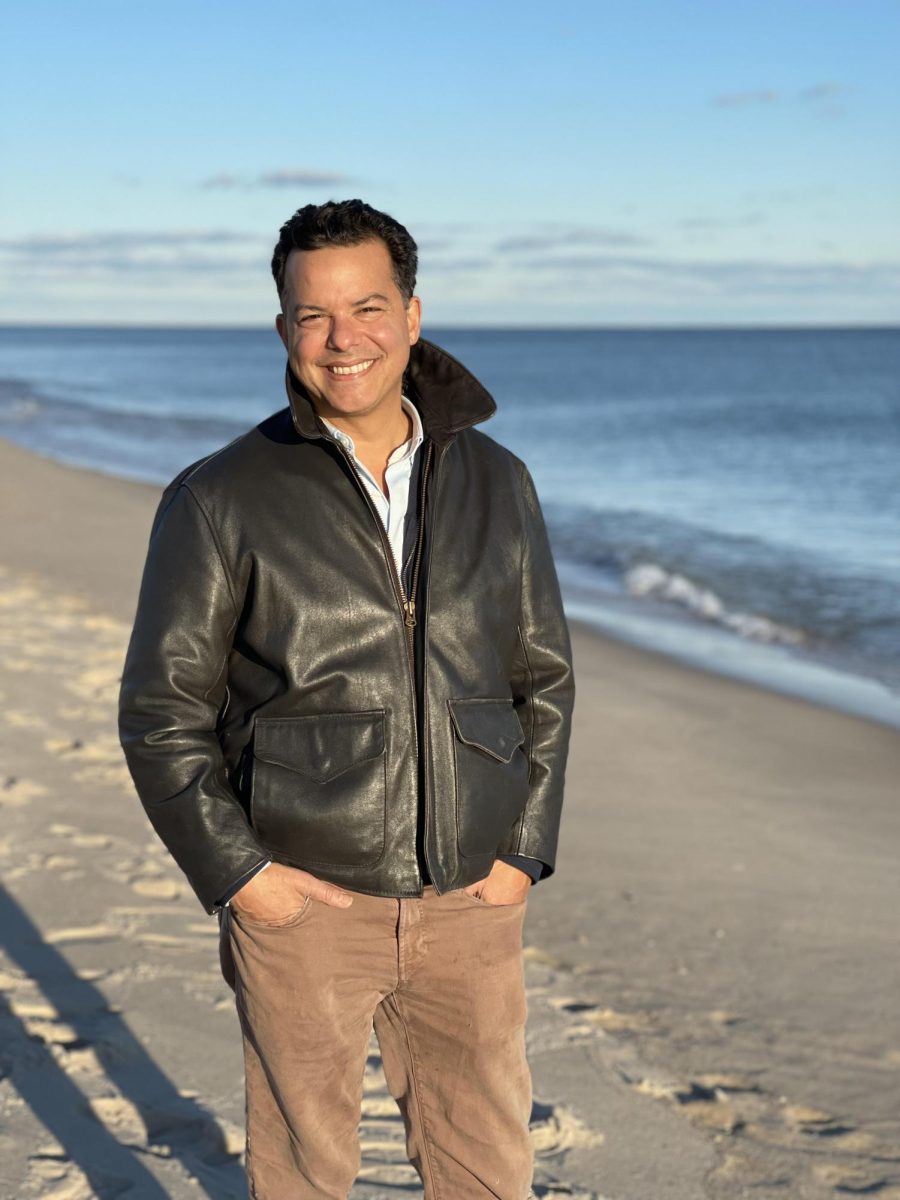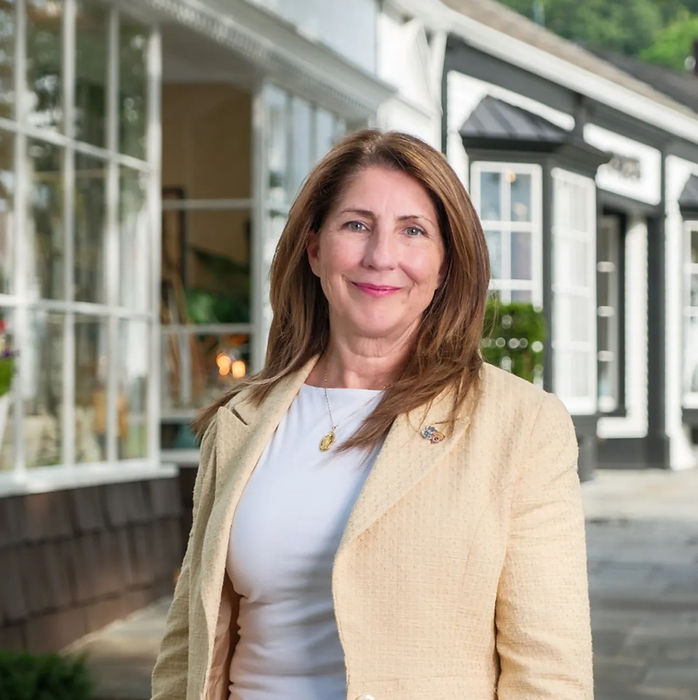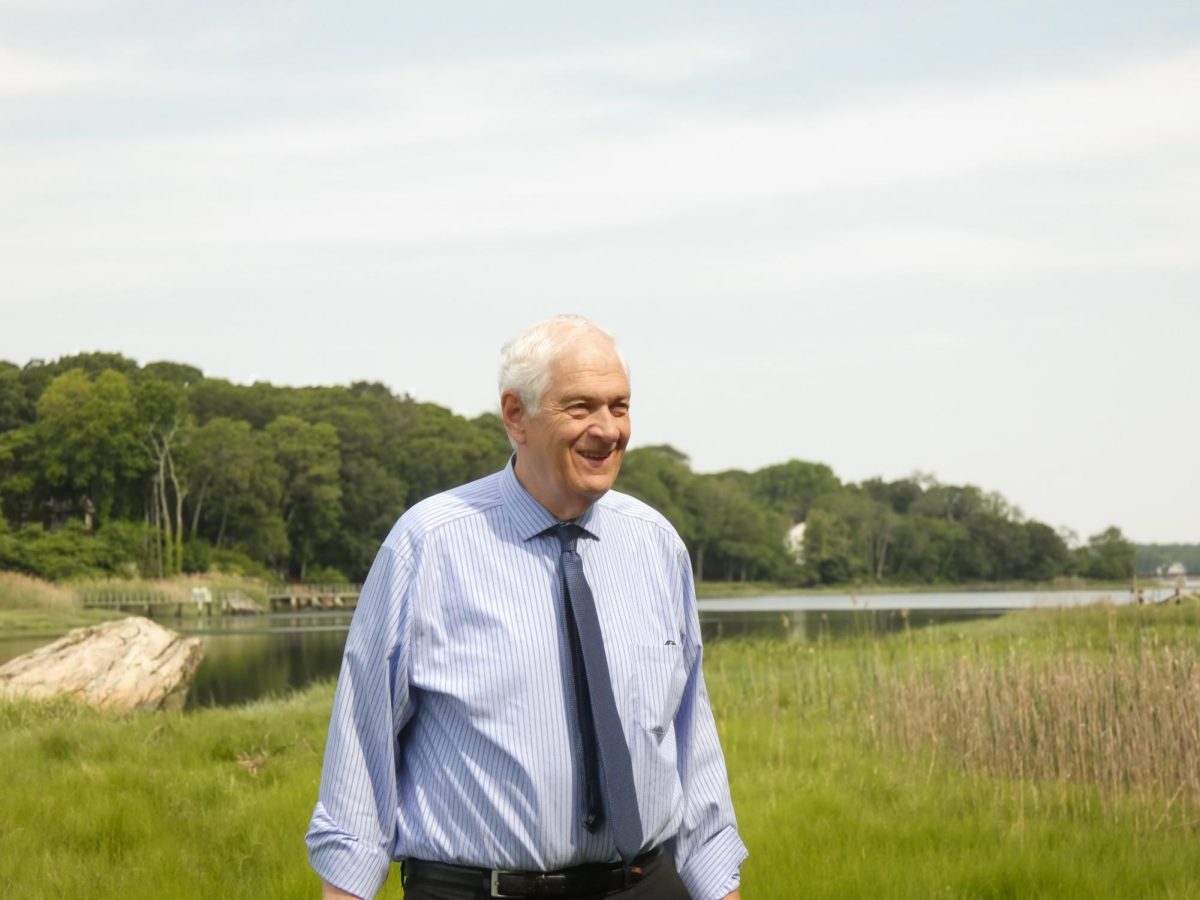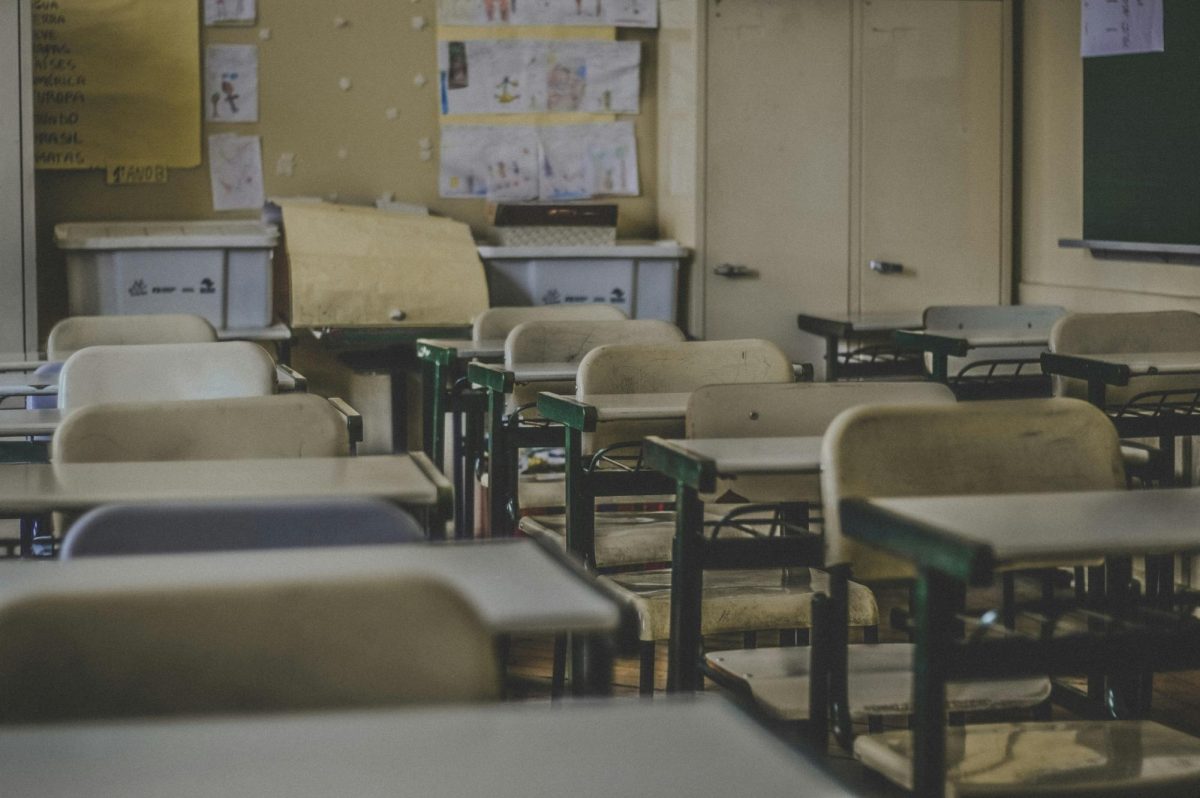John Avlon is the Democratic candidate for Congress in New York’s 1st Congressional District, where Three Village is located. Prior to running for Congress, he was a senior political analyst at CNN, and before that, the editor-in-chief of The Daily Beast. He is challenging incumbent Republican Representative Nick LaLota. Below is the full transcript of our interview with him, lightly edited for clarity.
Kaleidoscope: Let me get started with the issue of your residency. Your opponent, Representative Nick LaLota, says that you live in Manhattan. A story in the New York Post recently expanded on this, saying that you scored tax abatements on your apartment and that you had to claim it as your primary residence to do that. Are these allegations true, and what is your response?
John Avlon: Look, I appreciate any chance to clarify and clear all that up. Obviously, my home is in Sag Harbor. I was an anchor on CNN, worked in the city, and went back and forth between the two properties. My family bought our home in 2017 and took the census out there in 2020. The article is just an opposition research dump; it had a lot of inaccuracies in it, including claiming that there were issues regarding previous property taxes during times in which I did not own property. Obviously, I think for me, this is a deflection of the fact that Nick LaLota doesn’t live in the district. He promised he’d move here. He never did. He’s also never held a single in person town hall. So I think those are attempts to deflect from that issue. My home is in Sag Harbor.
Representative LaLota doesn’t live in the district as you mentioned, but he does have plenty of ties to the district. You only moved here recently. Do you think that Representative LaLota is making a broader point about who is more out of touch with Long Island voters, and do you have a response?
No, I think Representative LaLota is trying to desperately deflect the fact that he said he would move to the district if he was elected and had the honor of representing the first district. He’s never actually voted in the first district. Sag Harbor and Suffolk County is where my heart is and where my home is. As for being out of touch, he’s been a career partisan politician, and I’ve been a working journalist for most of the last 20 years.
Let’s move on to your campaign strategy. On your campaign website, you talk about defending democracy and defeating the Trump coalition. But voters have consistently shown that democracy is not at the top of their most important issues. Instead, they often talk about cost of living and immigration. Do you think that this is the best strategy to win? Or do you think focusing on what many consider are more practical issues is the best way to go?
Well, I think democracy is very practical, but I think it’s one of many issues. Affordability is a number one issue and that’s why my campaign is focused on rebuilding the middle of our politics and rebuilding the middle of our economy.
As a journalist, I’ve focused extensively on the dangers to our democracy from hyper-partisanship and polarization. It’s not a coincidence that we’ve hauled out the middle of our politics at the same time we’ve hauled out the middle of our economy.
That’s why while Nick LaLota talks about SALT a lot, he can’t get it done because Republicans have announced that they will not support a restoration of the state and local tax deduction (SALT) that Trump and the Republicans took away. [Democratic leaders in the House and Senate] Senator Schumer and Hakeem Jeffries have said that would be a top priority. I think that’s a game changer for working families.
In addition, expanding the child tax credit. Those are down payments on rebuilding the middle and rebuilding the middle of our economy, and we can get it done and restore faith [in our system].
I also think reproductive freedom is an essential issue of this campaign. My opponent cheered the overturning of Roe v. Wade and said states should go further. He has even called on New York to repeal its own abortion laws.
I think border security is an essential issue. I’m the grandson of immigrants, I think we need comprehensive immigration reform. I would vote for the bipartisan border security bill that my opponent helped kill. I think those are all crucial differences.
But you know what, if you take democracy for granted, you’re sort of missing the point of the entire experiment of self-government and being a self-governing society in a democratic republic. I think there’s a grave danger in trying to reward someone [Donald Trump] who tried to overturn an election on the back of a lie, and who is then using that lie as a litmus test for party loyalty. That’s why I think there is an opportunity and an obligation in this election to build a broad patriotic coalition to defend our democracy and to focus on what unites us, not on what divides us.
When Dick Cheney, Liz Cheney, Adam Kinzinger and more than two hundred Republican leaders endorse Harris, I think you see that there’s a desire to put country over party. I believe in putting country over party. That’s why I’m running for Congress.
You keep bringing up former president Trump and your campaign has sought to tie your opponent to former President Trump. But Trump is actually popular in Suffolk County. A recent Siena College poll found him up 14 points against Kamala Harris. So why are you pursuing this strategy?
I think first of all, that poll had a 6-point margin of error, and I think we’ll keep an eye on that. I don’t think you stick your finger in the wind. I think you need to campaign on principle, and I think that’s absolutely essential. I don’t think democracy is negotiable. I think it’s foundational if you believe in defending the Constitution.
I’m just trying to get this down, you keep talking about Trump, but Nick LaLota hasn’t endorsed every single Trump policy.
Nick LaLota endorsed Donald Trump enthusiastically before a single primary occurred, and he continues to enthusiastically defend Donald Trump. I think, you know, you take that good with the bad, don’t you?
You endorsed Kamala Harris. Does that mean that you support every policy proposal that she’s ever made?
No, but as Ronald Reagan once said, “my 80 percent ally is not my 20 percent enemy.” I think the difference is that this election is occurring in the wake of Donald Trump trying to overturn an election on the back of a lie that led to an attack on our Capitol.
I actually think he’s weak on national security. At the debate, he refused to say whether or not he thought Ukraine winning the war is in the national interest of the United States. I believe it’s very much in our national interest.
I’m asking about your campaign strategy and what you believe is the best way to win.
Tell me, what do you know about the district in terms of its voter registration? Do you know that there are more registered and independent voters than any other district in the state?
I do think that the reason Nick LaLota is campaigning as a moderate now after campaigning as a Trumper previously indicates that he’s trying to move to the middle. I’ve been in the middle my entire career.
You said Nick LaLota is running as a bipartisan but that he isn’t one. However, he does have somewhat of a bipartisan record. He has supported many Republican bills and he is part of the Republican Study Committee that’s brought up in your campaign literature quite often, but he is rated one of the more bipartisan members of Congress. He’s also opposed his party on several contentious votes. For example, he voted against the House Republican Agriculture Appropriations Bill because of mifepristone [abortion pill] restrictions in the bill.
What interests me is that he’s actually got a less bipartisan record, according to the Lugar Center, than every other Republican member of the House from Long Island. I think it’s really, compared to what? I think that Nick LaLota, as witnessed by his strong, strident defense of Donald Trump on a regular basis, does not actually hold common sense positions that represent the vast majority of voters here in the First District.
Let’s move on to what you believe and your issues. As I mentioned before, an important issue in this election is of course inflation and the cost of not only goods, but also housing. Many high school students will be trying to find a home in less than a decade, and prices seem to keep on rising. What will you, as a congressman, do to lower housing prices?
I think there are a number of things that can be done. First of all, we need to build more housing. We need to get back in the business of building, but it needs to be done in conjunction with communities. I think first-time homeowner loans are one way to encourage people to buy a home.
I think certain communities may choose to do ADUs [Accessory Dwelling Units] based on their own regulations and judgments.
Another one of the opportunities I’ve spoken a lot about, which is something they’re experimenting more with out West, is taking commercial properties and building residential buildings, particularly on strip malls.
This is an idea that creates sort of pop up communities with good sewer and transportation infrastructure. And I think those should be prioritized for cops, firefighters, teachers, and nurses because they’re the soul of our communities. In too many cases, they increasingly can’t afford to live in the communities in which they serve. I don’t think that’s right.
Another issue with cost is, of course, the cost of college. A lot of our students will be moving into college in just a couple of years, and tuition has outpaced inflation for the past several decades. What will you do to bring down the cost of college? I’m not just talking about student loan forgiveness, which has been touted by the Biden administration, but rather a permanent fix on the cost of college.
When you say a permanent fix, that implies a macro government solution. We’ve obviously got state universities, we’ve got community colleges, and we have private universities. The cost of college has gone up faster than the rate of inflation, as you say. There are many cost drivers for that. One of which is that federal funding didn’t keep pace with what it had previously been.
But if you look at what built the middle class in America, it’s overwhelmingly three things: unions, the GI Bill, and community colleges. And I do think on the issue of loan forgiveness, one idea that I think has real merit is to expand the definition of national service to allow more people to get out of their respective bubble, to work with other people and kids from across the country, and to emphasize that what unites us is greater than what divides us. All these things can then be done in exchange for student loan forgiveness.
You mentioned federal funding going down. Would you support a bill that would increase federal funding for colleges?
I think you need to look at what the specifics are. I can’t comment on hypothetical bills.
Let’s move on to another important issue for youth, specifically climate change. Long Island is subject to a lot of coastal problems, and just last month, Harbor Road, which is right in the Three Village School District, collapsed, leading to wildlife death and the destruction of Mill Pond. What are your concrete solutions on the issue, and specifically how it relates to Long Island?
Well, first of all, I went up there [to Mill Pond] the next morning and visited a lot of communities that were dealing with mud and rock slides, and I think there’s a real obligation to do more.
That’s one of the reasons why I think the Inflation Reduction Act, which contains a lot of funding for climate change mitigation, is a step in the right direction. We need to make sure to not repeal the legislation that’s been put in place. It’s designed to help us.
I also support a tax abatement or a tax deduction for people, individuals, families, and small businesses who make their properties more resilient because I think we want to incentivize that kind of behavior.
I generally think we should not be adding to regulations. We should be creating incentives for behavior that actually benefits the individuals, the families, the small businesses, and ultimately the communities. I was in Port Jeff, and I was talking to one of the firefighters about how often their area floods. There’s a particular need to make sure we’ve got the right kind of resilience and reinforcement in place and the federal government has a role to play in aiding those efforts.
On a related note, there was a report in the New York Times last month which raised the issue of groundwater. Long Island relies on groundwater in aquifers for its drinking water, and they are being threatened. Do you have any solution for this, and what can Long Island do to stop a catastrophic depletion of drinking water from happening?
This is an important issue, and one of the problems is that we’ve got this toxic bloom beneath the aquifers. Now, one of the things we obviously need to do is pass the Water Bond Act that’s going to be put forward this fall. [County Executive] Ed Romaine put that forward. Democrats have previously proposed it, and it was opposed in the legislature. It’s going forward now, and I think that deserves broad bipartisan support because it’s the right thing to do.
We need to get smart septic systems and better sewers in place, which will help mitigate the nitrogen runoff and keep our aquifers pure. But this is an issue that affects all of us. That’s why clean water is something we need to focus on and have a broad bipartisan commitment to. That bond act will likely help and is a step in the right direction; it creates the kind of investment we need.
That’s a local solution. But as you know, groundwater depletion is also an issue out West, in Arizona, California, Nevada, and other states. Would you work with your future colleagues on some kind of federal legislation about groundwater if elected?
I don’t have any specific piece of legislation in mind. I can’t comment on it.
I’m just interested whether you think it’s a broader solution that requires broader solutions instead of just localized efforts.
Well, there are local problems that have local solutions. There are also things the federal government can do. As Abraham Lincoln once said, the proper role for the government is to do for individuals and communities what they cannot do so well for themselves. We are all dependent on water. Clean water is in all our interests, but I can’t comment on a specific bill unless I know what it is.
Let’s talk about the job market and specifically the gig economy, which has proven to be an issue for young people because it provides young people with very difficult, long-hour, and low-income jobs, and it’s very difficult to get out of this system. Do you support any regulations on the gig economy and the business models of companies such as Uber or Lyft?
I’d have to look at specifically what proposals you’re referring to with regard to the gig economy, but the changing nature of work should change the way that we make sure that there’s a reasonable social safety net.
If they’ve got good jobs with good health care plans, that’s great. But I think the A.C.A. [Affordable Care Act], for example, allows people to get coverage at a lower rate than they previously did.
There have been proposals to force these companies to pay their workers an hourly wage and list them as actual employees of the company, as opposed to hired contractors.
That’s not anything I’ve addressed or I’ve looked at, so I can’t comment on something unless I know the issue and have studied their proposals.
Mental health is an extremely important topic for teenagers and one that we have not seen addressed greatly at a federal level. A 2022 Senate Committee on Finance report said that “more than half of people who need mental health care in this country do not receive it.” What would you do to rectify this issue?
I think mental health is a form of healthcare, and we’ve made great strides in covering it. I think one of the issues that has brought bipartisan support with regard to teen mental health, which is discussed in Jonathan Haidt’s book, The Anxious Generation, is to deal with the impact of social media, which has a demonstrably negative effect on the mental health of teens and particularly young girls.
I do think there are steps that are being taken in different states to try to address that, and I think that’s appropriate. Again, it’s an area where we’ve got some bipartisan agreement and I think that’s great.
Speaking of social media and bipartisan agreement, the KOSA [Kids Online Safety Act] bill recently passed the Senate nearly unanimously, but it’s now stalled in the House. It would provide for certain protections against social media, but some advocates, including the ACLU, have said that it would limit civil liberties. If you were elected, would you support this bill?
I can’t comment on the bill because I need to study the bill. I do think that there’s a lot of bipartisan social media and algorithm reform legislation which is very promising. Again, I’m not going to comment on a specific bill unless I’ve studied the specific bill.
Relating to the issue, 13 states have now passed some form of restrictions on cell phones in school. Do you think this is an issue that should be dealt with federally? And if so, what would you do about it?
I think as long as it is being dealt with on a state level, I do support regulations. The reforms that are being put in place to ensure that there aren’t smartphones in schools, I do think they are a win-win. They have better outcomes for students for socialization, for families, for teachers, and for the broader educational process. So I think that those sorts of individual state efforts are quite healthy.
Voting rights and voter turnout are important topics. Many think that this only affects more disadvantaged communities, but high rates of young people across demographics have not been voting in elections recently. What would you do to drive voter turnout, voter engagement, and ensure that voting rights are not threatened?
There are a number of voting rights enhancement legislative proposals, which are important. We need to strengthen the guardrails around a democracy and representative elections have representative turnout.
Youth vote has been low in recent elections, and I very much hope that we see increased youth turnout in this election because elections are ultimately about the future of our country and our world. I think it’s absolutely essential that we’ve got maximum participation. Obviously, it must be somewhat frustrating to see an election with such consequences for the country that you will live in where you don’t have a voice.
I also believe we need to teach civics education more. More civics education is an enormous passion of mine because we need to remind people there are rights and responsibilities to citizens of a democratic republic.
One of the things that I think should frustrate young people is that a lot of political figures look cynically upon your opinions because they say young people don’t vote, so they don’t matter. And they then use that as an excuse to not think in terms of generational responsibility.
I think that generational responsibility needs to be a key of any policy. You need to think about the implications for something and think about something larger than yourself. It’s why many people become more politically engaged once they have children, because this idea gets driven home.
I just think that if young voters have got the ability to vote, don’t take that for granted. Freedom isn’t free. It needs to be defended by each generation, and that means being an active participant in our democracy. Democracy is not a spectator sport. It means participating in the process. That’s why we need civic education, and why we need to inspire people to get involved in the process, because I think that’s what democracy depends on.
Let’s say somebody cynically says, well, my vote doesn’t count. That then leads them to not vote, which means that their vote definitionally does not count. This means that politicians can dismiss their point of view. I think that is not acceptable because every vote counts.
At this point, the audio of the call disconnected and we were unable to reconnect. We were, however, mostly done, and the topics that we did not touch upon in detail, such as abortion, immigration, and the SALT deduction, he addressed in an earlier response.
Kaleidoscope sincerely thanks Mr. Avlon and his campaign for the time they gave us and for all the questions that he answered.









